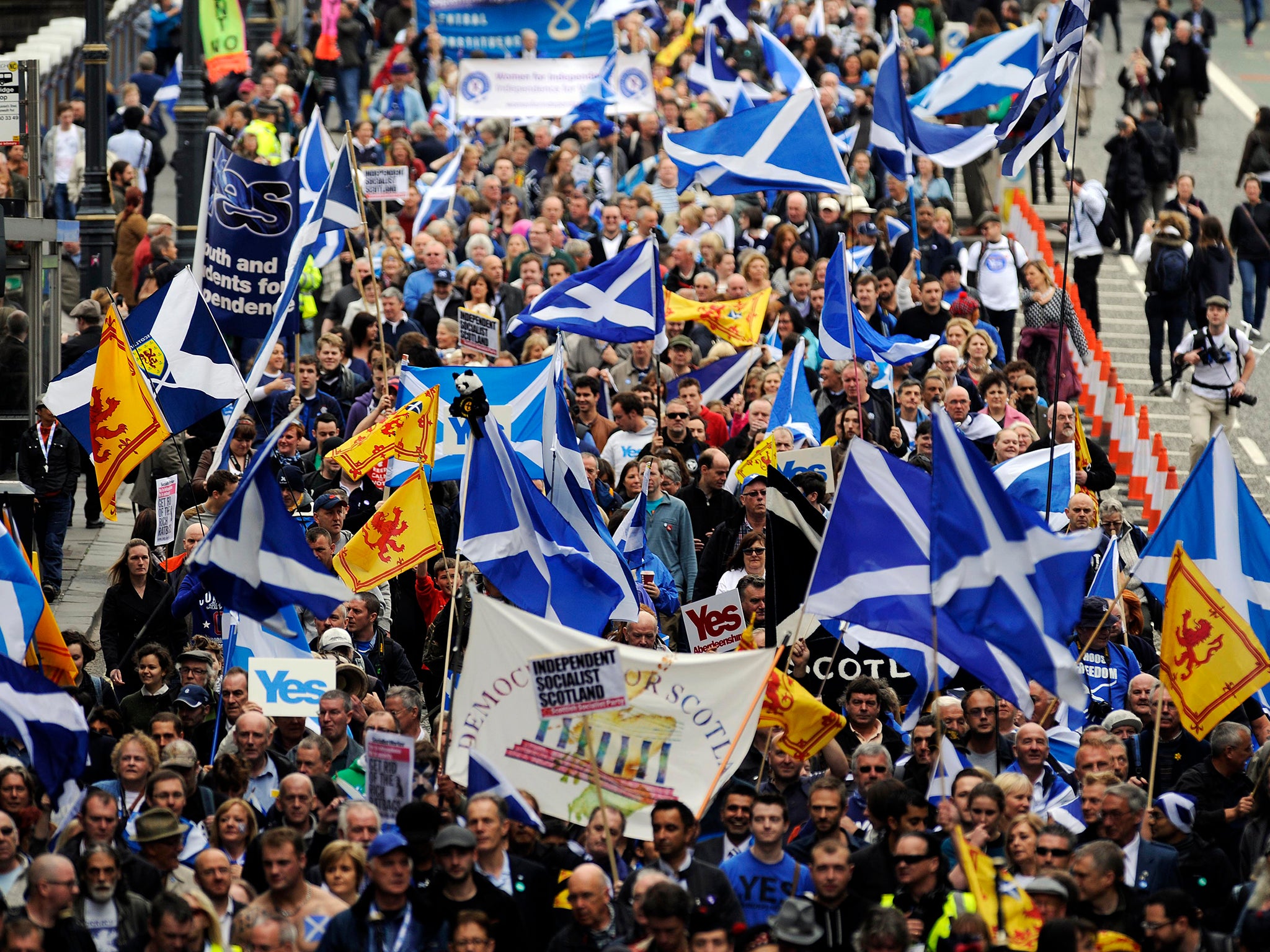The unintended consequences of referendas
The Scottish referendum brought out both the best and the worst in Scots

Ever since the Prime Minister emerged from the European Council boasting of having secured a “special status” for the UK and confirming referendum day as 23 June, I’ve had an overwhelming sense of déjà vu. Judging from social media, it’s a feeling shared by many involved in the Scottish independence debate of 2012-14.
The first casualty of a constitutional referendum is the truth – or, at least, generally accepted boundaries for political debate. Faced with a choice between In or Out, there is little place for nuance; both sides reach for the box marked “hyperbole”. It has already begun: warnings that the UK will be more vulnerable to terrorist attacks in (or out) of the EU, that migrant camps might relocate to the south of England, and so on. Others pedal deliberate falsehoods to bolster a flimsy case, conflating the European Convention on Human Rights with the EU, and speaking as if the UK were somehow being dragged into crises (eurozone and migrant) from which it actually stands aloof. Meanwhile, the Brexiters, who just two years ago rejected utopian depictions of what Scotland might be like outside the UK – richer, fairer and freer – now wield remarkably similar arguments in favour of British “independence”.
In Scotland, most (but not all) politicians spent two years conspiring with large chunks of the electorate to have as desultory a debate as possible while congratulating themselves about dispelling voter apathy. The referendum raised big questions – as does its EU corollary – but tended to deal with them in a very small way. Complex points about economics and “sovereignty” were boiled down to often meaningless debating points. Then there’s the media bashing. The BBC has the hardest job, pressurised to abandon “impartiality” – weighing up arguments on the basis of empirical evidence – in favour of “balance”, which means presenting both sides as if they’re equally credible.
The independence referendum brought out both the best (disputatiousness) and the worst (tribalism) in Scots, and there’s a strong chance the EU referendum will do the same. Perhaps the more limited time frame – Cameron has clearly learnt one lesson from the independence referendum – will limit that, but I have my doubts.
Also not to be underestimated is the personal dimension. Although journalists and politicians tend to possess thick skins, the two year-long Scottish debate took its toll. I was shocked at the effect it had on friends and colleagues with differing views, with whom I’d hitherto been able to spar with humour and respect. Of course, passions run high when big constitutional questions are at stake. Many clearly viewed the Scottish Question as an existential one that cut to the very heart of who they were. The same is true of the UK and the EU.
None of this is an argument against referendums – I happen to think the prime minister deserves credit for attempting to draw a line under two long-running issues – but it is a plea for realism and restraint. Referendums are subject to the law of unintended consequences, and they’re not always good.
Join our commenting forum
Join thought-provoking conversations, follow other Independent readers and see their replies
Comments
Bookmark popover
Removed from bookmarks